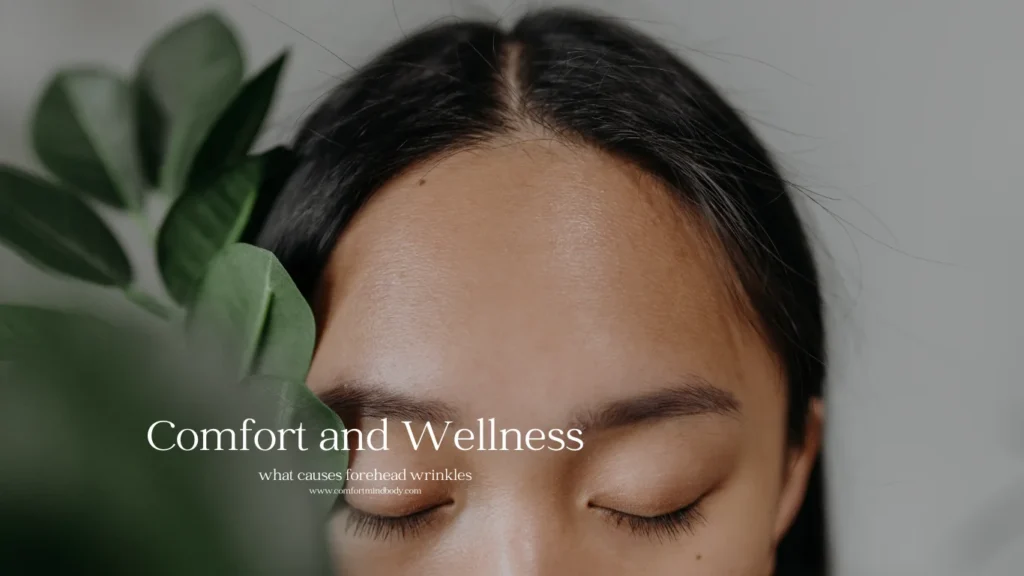Table of Contents
ToggleIntroduction:
Easy Face Masks for Glowing Skin You Can Make at Home. In today’s world, people are becoming more and more conscious of their skin’s health and appearance.
We all know that a healthy and glowing complexion is a sign of good skin health. However, with several factors like pollution, stress, and unhealthy lifestyle choices, getting that perfect glow can be a challenge. This is where DIY face masks come in.
This article will cover everything you need to know about DIY face masks for glowing skin. It will include their benefits, common ingredients, recipes for different skin types, and safety tips for using them.
Face Masks for Glowing Skin
DIY face masks for glowing skin have become increasingly popular in recent years. These masks are easy to make, require minimal effort, and are cost-effective compared to commercial face masks. They are also free from harmful chemicals and preservatives, making them a safer and healthier option for your skin.
DIY face masks can help to nourish, cleanse, and hydrate your skin. They can improve skin texture, reduce inflammation, and brighten up your complexion. Moreover, you can customize these masks according to your skin type and the ingredients that work best for you.
Benefits of Using DIY Face Masks
Using DIY face masks for glowing skin has several benefits. Firstly, they are free from harmful chemicals and preservatives that can damage your skin.
Secondly, they can help to nourish and hydrate your skin, leaving it soft, supple, and glowing. Thirdly, DIY face masks can help clear pores and remove dirt from the skin. This can prevent acne and blackheads.
DIY face masks can also improve the texture of your skin and reduce the appearance of fine lines and wrinkles.
They can soothe irritated skin, reduce inflammation, and brighten up your complexion. Moreover, DIY face masks can be customized according to your skin type and the best ingredients.
Ingredients Commonly Used in DIY Face Masks
Several ingredients are commonly used in DIY face masks for glowing skin. These include:
1. Honey
Honey is a natural humectant that can help to moisturize and soothe dry, irritated skin. It has antibacterial properties that can help to prevent acne breakouts and reduce inflammation. Honey is also rich in antioxidants that can help to protect your skin from damage caused by free radicals.
2. Yogurt
Yogurt is rich in lactic acid, which can help to exfoliate and brighten up your skin. It also has probiotics that help balance the natural bacteria on your skin. This can prevent acne and other skin problems.
3. Turmeric
Turmeric is a strong anti-inflammatory. It can help reduce redness and swelling from acne and other skin problems. It also contains antioxidants that can protect your skin from damage caused by free radicals.
4. Aloe Vera
Aloe vera is a natural moisturizer that can help soothe and hydrate dry, irritated skin. It also has anti-inflammatory properties. These can help reduce redness and swelling from acne and other skin problems.
5. Avocado
Avocado is rich in healthy fats, vitamins, and minerals that can nourish and hydrate your skin. It also contains antioxidants that can help to protect your skin from damage caused by free radicals.
DIY Face Mask Recipes for Glowing Skin
Easy Face Masks for Glowing Skin You Can Make at Home
Here are some DIY face mask recipes that can help you achieve a glowing complexion:
1. Honey and Yogurt Face Mask
Ingredients:
- 1 tablespoon honey
- 1 tablespoon plain yogurt
Instructions:
- Mix the honey and yogurt in a bowl.
- Apply the mixture to your face and leave it on for 10-15 minutes.
- Rinse off with warm water and pat dry.
2. Turmeric and Aloe Vera Face Mask
Ingredients:
- 1 tablespoon turmeric powder
- 2 tablespoons aloe vera gel
Instructions:
- Mix the turmeric powder and aloe vera gel in a bowl.
- Apply the mixture to your face and leave it on for 10-15 minutes.
- Rinse off with warm water and pat dry.
3. Avocado and Honey Face Mask
Ingredients:
- 1/2 ripe avocado
- 1 tablespoon honey
Instructions:
- Mash the avocado in a bowl.
- Add the honey and mix well.
- Apply the mixture to your face and leave it on for 10-15 minutes.
- Rinse off with warm water and pat dry.
DIY Face Mask Recipes for Different Skin Types
Easy Face Masks for Glowing Skin You Can Make at Home
Different skin types require different types of care, and the same goes for DIY face masks. Here are some DIY face mask recipes for different skin types:
1. Dry Skin
Ingredients:
- 1 ripe banana
- 1 tablespoon honey
- 1 tablespoon olive oil
Instructions:
- Mash the banana in a bowl.
- Add the honey and olive oil and mix well.
- Apply the mixture to your face and leave it on for 10-15 minutes.
- Rinse off with warm water and pat dry.
2. Oily Skin
Ingredients:
- 1 egg white
- 1 tablespoon lemon juice
Instructions:
- Beat the egg whites in a bowl.
- Add the lemon juice and mix well.
- Apply the mixture to your face and leave it on for 10-15 minutes.
- Rinse off with warm water and pat dry.
3. Combination Skin
Ingredients:
- 1/2 ripe avocado
- 1 tablespoon honey
- 1 tablespoon plain yogurt
Instructions:
- Mash the avocado in a bowl.
- Add the honey and yogurt and mix well.
- Apply the mixture to your face and leave it on for 10-15 minutes.
- Rinse off with warm water and pat dry.
How to Use DIY Face Masks for Best Results
Easy Face Masks for Glowing Skin You Can Make at Home
To get the best results from your DIY face masks, follow these simple steps:
- Start by cleansing your face with a gentle cleanser to remove any dirt, oil, or makeup.
- Apply the DIY face mask to your face using clean fingers or a brush.
- Leave the mask on for the recommended time (usually 10-15 minutes).
- Rinse off the mask with warm water and pat your face dry with a clean towel.
- Follow up with your regular skincare routine, including a moisturizer and sunscreen.
Tips for Making and Storing DIY Face Masks
Easy Face Masks for Glowing Skin You Can Make at Home
Here are some tips for making and storing DIY face masks:
- Always use clean and sanitized utensils and containers when making DIY face masks.
- Store your DIY face masks in airtight containers in the refrigerator to extend their shelf life.
- Always do a patch test before applying a new DIY face mask to your face to check for any allergic reactions.
Precautions to Take When Using DIY Face Masks
Easy Face Masks for Glowing Skin You Can Make at Home
While DIY face masks are generally safe and effective, there are some precautions you should take when using them:
- Avoid using ingredients that you are allergic to or that have caused a reaction in the past.
- Do not apply DIY face masks to broken, irritated, or sunburnt skin.
- Avoid using DIY face masks too frequently, as this can cause over-exfoliation and damage to your skin.
Alternatives to DIY Face Masks for Glowing Skin
Easy Face Masks for Glowing Skin You Can Make at Home
If DIY face masks are not your thing, there are several alternatives you can try to achieve a glowing complexion. These include:
- Use a gentle cleanser to cleanse your face twice a day.
- Exfoliate your skin once or twice a week to remove dead skin cells and promote cell turnover.
- Use a serum with antioxidants and other beneficial ingredients to nourish and protect your skin.
- Apply a moisturizer with SPF to protect your skin from the sun’s harmful UV rays.
Conclusion
DIY face masks are a great way to achieve a glowing complexion without breaking the bank. They are easy to make, customizable, and free from harmful chemicals and preservatives.
By using the recipes and tips in this article, you can make your face masks. This will help you get the healthy, glowing skin you have always wanted.

Laneige Water Sleeping Mask
Overnight mask with Sleeping Microbiome and a special Pro-biotics Complex. It strengthens your skin’s defense and absorbs quickly while you sleep. This helps to deeply hydrate your skin.
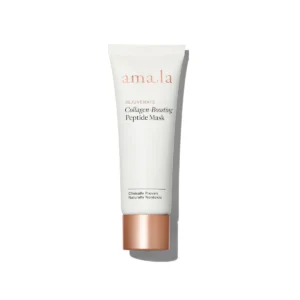
Collagen-Boosting Peptide Mask
- Delivers vital moisture to the skin, while promoting the skin’s resilience and elasticity
- Reduces the look of fine lines and wrinkles and helps improve skin texture and firmness
![Easy Face Masks for Glowing Skin You Can Make at Home 5 [Beauty of Joseon] Red Bean Refreshing Pore Mask](https://comfortmindbody.com/wp-content/uploads/2024/08/Beauty-of-Joseon-Red-Bean-Refreshing-Pore-Mask-140ml--300x300.webp)
Beauty of Joseon Red Bean Refreshing Pore Mask
Our pore-clearing mask uses kaolin and 30% red bean extract. It helps absorb extra oil and removes dead skin cells. The moisturizing clay texture provides a refreshing, non-drying cleanse, refining skin texture and leaving a cool, clean feel.
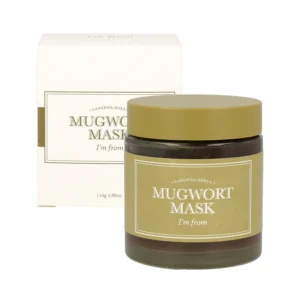
I’m From Mugwort Mask
Pros:
Soothes redness and irritation
Deeply cleanses with a calming effect
Gel-like texture with a cooling sensation
Cons:
May require consistent use to see significant improvements
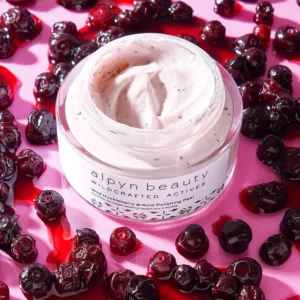
Wild Huckleberry 8-Acid Polishing Peel
A double-exfoliating peel uses eight natural acids, bamboo powder, and wild plants. It helps to smooth and brighten skin. It also refines the appearance of pores.
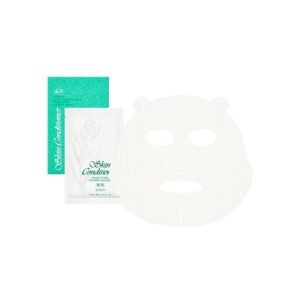
Skin Conditioner Essential Paper Mask
Experience the transformative benefits of our iconic Skin Conditioner Essential N in a luxurious spa-like treatment. This mask is made with Kita no Hato (Job’s tears), a cosmetic superfood. It is grown organically in Hokkaido. This mask conditions, clears, and calms your skin. It helps promote a healthy, dewy glow for a timeless beauty look.
Affiliate Disclosure:
The links contained in this product review may result in a small commission. This goes towards supporting our research and editorial team and please know we only recommend high-quality products.
Note: This article is for informational purposes only and is not intended to diagnose, treat, or cure any disease. Always consult a healthcare professional before taking any supplement or making any changes to your diet or lifestyle.



